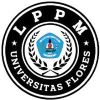Pelatihan dan Pendampingan Pembelajaran Kolaboratif dengan Mengembangakan Bahan Ajar Digital Berbasis Learning Management System (LMS)
DOI:
https://doi.org/10.37478/abdika.v3i4.3254Abstract
This collaborative learning aims to improve the quality and quantity of cooperation between universities in eastern Indonesia through the implementation of collaborative online learning. Collaborative online learning training involves six educators who will teach.. Based on the results of a survey that has been conducted, it is stated that IPB Cirebon students still use LMS as a lecture system, while Uniflor students have a face-to-face lecture system. Therefore, a collaborative online learning program (PDK) was carried out between IPB Cirebon and Uniflor. The PDK program is implemented using three stages. These stages include starting from initial studies, planning, implementation, monitoring and evaluation. Using stages in the PDK program is the right approach. Active student involvement in every meeting, the development of LMS-based digital teaching materials will be more oriented towards student needs and aspirations. Through active student participation, the PDK program has the potential for better achievements, realizing learning in 2045. Collaborative online learning between two universities can increase digital literacy between students and educators. Collaborative online learning can also develop students' abilities in the 3T area. Through this learning, students can collaborate with other university students.
Downloads
Keywords:
Collaborative Learning, Digital Teaching Materials, Learning Management SystemReferences
Bakri, N. F., Simaremare, E. S., Lingga, I. S., Susilowaty, R. A., Farmasi, J., Matematika, F., Alam, P., & Cenderawasih, U. (2021). Pelatihan Pembuatan Materi Presentasi dan Video Pembelajaran Menggunakan Aplikasi Canva Kepada Guru di Kota Medan dan Jayapura Secara Online. Ilmiah Pro Guru, 7(1), 1–10. http://journal2.um.ac.id/index.php/jipg/article/download/18777/7086
Bradley, V. M. (2020). Learning Management System (LMS) Use with Online Instruction. International Journal of Technology in Education, 4(1), 68. https://doi.org/10.46328/ijte.36
Hasbullah. (1997). Belajar dan Faktor-faktor yang Mempengaruhi. Jakarta: Rineka Cipta.
Hidayati Azkiya, M. Tamrin, Arlina Yuza, & Ade Sri Madona. (2022). Pengembangan E-Modul Berbasis Nilai-Nilai Pendidikan Multikultural di Sekolah Dasar Islam. Jurnal Pendidikan Agama Islam Al-Thariqah, 7(2), 409–427. https://doi.org/10.25299/al-thariqah.2022.vol7(2).10851
Ilmadi, Herlina, E., & Isnurani. (2021). Analisis Kepuasan Mahasiswa dalam Pembelajaran Online dengan Menggunan]kan LMS Moodle. Histogram: Jurnal Pendidikan Matematika, 5(2), 159–171. https://doi.org/https://doi.org/10.22437/bio.v6i2.9759
Klug, B., & Williams, U. (2020). Canva. The Charleston Advisor, 17(4), 13–16. https://doi.org/10.5260/chara.17.4.13
Malina, I., Yuliani, H., & Syar, N. I. (2021). Analisis Kebutuhan E-Modul Fisika sebagai Bahan Ajar Berbasis PBL di MA Muslimat NU. Silampari Jurnal Pendidikan Ilmu Fisika, 3(1), 70–80. https://doi.org/10.31540/sjpif.v3i1.1240
Marzuki, I., & Oktarianto, M. L. (2022). Pendampingan Pembelajaran Dengan Paradigma Baru Bagi Sekolah Penggerak Terkait Asesmen Pembelajaran Di Upt Sd Negeri 211 Gresik. JURNAL CEMERLANG: Pengabdian Pada Masyarakat, 4(2), 300–309. https://doi.org/10.31540/jpm.v4i2.1632
Mimin Ninawati, Burhendi, F. C. A., & Wulandari, W. (2021). Pengembangan E-Modul Berbasis Software iSpring Suite 9. Jurnal Educatio FKIP UNMA, 7(1), 47–54. https://doi.org/10.31949/educatio.v7i1.830
Muhsin, A., Nafisah. L., Siswanti, Y. (2018). Participatory Rural Appraisal (PRA) For Corporate Social Responsibility (CSR). 978-Nomor ISBN, 282. https://eprints.upnyk.ac.id/26169/1/Buku Participatory Rural Appraisal.pdf
Pratama, B. (2012). Pengembangan Learning Management System ( LMS ) Berbasis Android Universitas Pendidikan Indonesia | repository.upi.edu. Repository UPI, 1–11. http://repository.upi.edu/10153/
Purnamasari, A. W., Wiranatha, A. A. K. A. C., Made, N., & Marini, I. (2016). Aplikasi M-Learning pada Platform Android. Merpati, 2(1), 167–178.
Peraturan Mentri Pendidikan dan Kebudayaan Nomor 22 Tahun 2020 Tentang Rencana Strategi Kementrian Pendidikan dan Kebudayaan Tahun 2020- 2024, Tanggal: 30 Maret 2023.
Puteri, A. N., Yoenanto, N. H., & Nawangsari, N. A. F. (2023). Efektivitas Asesmen Autentik dalam Pembelajaran. Jurnal Pendidikan Dan Kebudayaan, 8(1), 77–87. https://doi.org/10.24832/jpnk.v8i1.3535
Putra, A. A., Wahyuni, I. W., Alucyana, & Ajriya. (2021). Pengaruh Penggunaan Handphone Pada Siswa Sekolah Dasar. Al-Hikmah: Jurnal Agama Dan Ilmu Pengetahuan, 18(1), 79–89. https://doi.org/10.25299/al-hikmah:jaip.2021.vol18(1).6531
Resmini, S., Satriani, I., & Rafi, M. (2021). Pelatihan penggunaan aplikasi canva sebagai media pembuatan bahan ajar dalam pembelajaran bahasa Inggris. Abdimas Siliwangi, 4(2), 335–343. https://journal.ikipsiliwangi.ac.id/index.php/abdimas-siliwangi/article/view/6859
Rikawati, K., & Sitinjak, D. (2020). Peningkatan Keaktifan Belajar Siswa dengan Penggunaan Metode Ceramah Interaktif. Journal of Educational Chemistry (JEC), 2(2), 40. https://doi.org/10.21580/jec.2020.2.2.6059
Rosiyanti, H., Eminita, V., & Riski, R. (2020). Desain Media Pembelajaran Geometri Ruang Berbasis Powtoon. FIBONACCI: Jurnal Pendidikan Matematika Dan Matematika, 6(1), 77. https://doi.org/10.24853/fbc.6.1.77-86
Rosnaeni, R. (2021). Karakteristik dan Asesmen Pembelajaran Abad 21. Jurnal Basicedu, 5(5), 4341–4350. https://doi.org/10.31004/basicedu.v5i5.1548
Sasmita, R. S. (2020). Research & Learning in Primary Education Pemanfaatan Internet Sebagai Sumber Belajar. Jurnal Pendidikan Dan Konseling, 1, 1–5.
Sholeha, H. H., Maulana, M., & Isrokatun, I. (2020). Analisis Kelayakan Media Wayang Statistik Menggunakan Pendekatan Rme Menurut Guru Sekolah Dasar. Jurnal Pena Ilmiah, Vol 3, No(Vol 3, No 2 (2020)). https://doi.org/https://doi.org/10.17509/jpi.v3i2.27764
Downloads
Published
How to Cite
Issue
Section
License
Copyright (c) 2023 Siti Sahronih, Mochamad Guntur, Herisa Hardiyanti Sholeha, Zakiyah Ismuwardani, Ratri Nuryani Qudwatullathifah, Gregorius Sebo Bito, Nining Sariyyah, Frumenius B Dole

This work is licensed under a Creative Commons Attribution-ShareAlike 4.0 International License.










